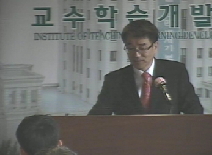베트남은 2007년 WTO 가입 이후, 동남아시아에서 외국인직접투자(FDI)를 가장 많이 유치한 국가로 부상하였다. 외국인직접투자는 베트남의 제조업과 OEM 가공무역 성장의 원동력이 되었으며, 외...
http://chineseinput.net/에서 pinyin(병음)방식으로 중국어를 변환할 수 있습니다.
변환된 중국어를 복사하여 사용하시면 됩니다.
- 中文 을 입력하시려면 zhongwen을 입력하시고 space를누르시면됩니다.
- 北京 을 입력하시려면 beijing을 입력하시고 space를 누르시면 됩니다.

Marine Life Disaster by Taiwanese Formosa Steel in Vietnam = 대만 포모사 (Formosa Steel)에 의한 베트남 해양오염 사건 연구 - 외국인직접투자(FDI)의 사회적 책임에 대한 교훈 -
한글로보기https://www.riss.kr/link?id=A105374495
- 저자
- 발행기관
- 학술지명
- 권호사항
-
발행연도
2018
-
작성언어
English
- 주제어
-
등재정보
KCI등재
-
자료형태
학술저널
-
수록면
53-80(28쪽)
- 제공처
-
0
상세조회 -
0
다운로드
부가정보
국문 초록 (Abstract)
베트남은 2007년 WTO 가입 이후, 동남아시아에서 외국인직접투자(FDI)를 가장 많이 유치한 국가로 부상하였다. 외국인직접투자는 베트남의 제조업과 OEM 가공무역 성장의 원동력이 되었으며, 외국인직접투자를 고려하지 않고는 베트남의 경제성장을 논의하기 어렵게 되었다. 그러나 외국인직접투자 증가에 의한 급속한 공업화와 경제성장은 베트남 사회에 적지 않은 비용을 발생시키고 있다. 본 연구는 2016년 대만 포모사철강에 의한 베트남 해양오염 사건에 주목하였고, 그 사건 이후 베트남에서 외국인직접투자의 사회적 책임을 요구하는 목소리가 커지게 된 원인과 배경을 분석하였다. 즉 해양오염 사건과 진상규명을 요구하는 일련의 반(反)정부 시위를 통해, 베트남 사람들은 지속 가능한 발전이라는 관점에서 외국인직접투자의 사회적 비용을 실질적으로 깨닫게 되었다. 본 연구는 기업의 사회적 책임(Corporate Social Responsibility) 측면에서 베트남 해양오염 사건이 다국적 기업들에게 주는 교훈을 도출하였다. 무엇보다도 앞으로 베트남에서 저렴한 노동력과 환경 관리비용을 바탕으로 원가절감 전략을 추구하는 다국적 기업들의 입지가 점점 좁아질 가능성이 높다. 국내외 시민단체와 비(非)정부 기구(NGO)들은 베트남 현지 기업들과 외국인직접투자자들의 근로조건과 환경오염 관리 실태에 대한 감시를 더욱 강화하고 있다. 아울러 이들은 외국인직접투자자들에 대한 베트남 정부의 실질적인 감독 및 공정하고 투명한 ‘법의 지배’ 체제를 더욱 강화할 것을 요구하고 있다.
다국어 초록 (Multilingual Abstract)
Vietnam emerged as a hot region for Foreign Direct Investment (FDI) in Southeast Asia since the accession to WTO in 2007. The FDI has been a key growth engine of Vietnamese manufacturing & processing industries. So it is difficult to discuss the Vietn...
Vietnam emerged as a hot region for Foreign Direct Investment (FDI) in Southeast Asia since the accession to WTO in 2007. The FDI has been a key growth engine of Vietnamese manufacturing & processing industries. So it is difficult to discuss the Vietnamese economy without considering the FDI’s contribution. However the rapid industrialization and economic growth by FDI cause many side effects in Vietnam, and they lead to the social expense growing. This study accessed the side effects of the FDI by looking into the marine life disaster by Formosa Steel in 2016. The marine life disaster made the environment conservation a critical issue of corporate social responsibility (CSR), and it gave a real chance to think about the pros & cons of FDI for the sustainable development of Vietnam. This study analyzed what lessons can be taken from Formosa Steel’s wrongdoings from FDI’s social responsibility perspective. As a result it is more and more difficult for the FDI to maintain the cost leadership strategy only through cheap labor or ignoring the environmental expense. Both local NGOs and global NGOs began to demand the global standards for local OEM partners’ working condition and environment issue. In addition a more strict monitoring system by government and the ‘Rule of Law’ for all activities of FDIs are also strongly required in Vietnam.
목차 (Table of Contents)
- Ⅰ. Introduction
- Ⅱ. Previous Studies and Theory Review
- Ⅲ. Marine Life Disaster of Vietnam
- Ⅳ. Lessons for Social Responsibility of FDI in Vietnam
- Ⅴ. Conclusion
- Ⅰ. Introduction
- Ⅱ. Previous Studies and Theory Review
- Ⅲ. Marine Life Disaster of Vietnam
- Ⅳ. Lessons for Social Responsibility of FDI in Vietnam
- Ⅴ. Conclusion
- Reference
- 〈국문요약〉
- 〈Abstract〉
동일학술지(권/호) 다른 논문
-
中韓(韓中) 번역을 통해 본 구글번역(GNMT)의 문제
- 영남대학교 중국연구센터
- 남철진(Cheol Jin Nam)
- 2018
- KCI등재
-
- 영남대학교 중국연구센터
- 유정원(Jeong Weon Yu)
- 2018
- KCI등재
-
- 영남대학교 중국연구센터
- 최병헌
- 2018
- KCI등재




 DBpia
DBpia



